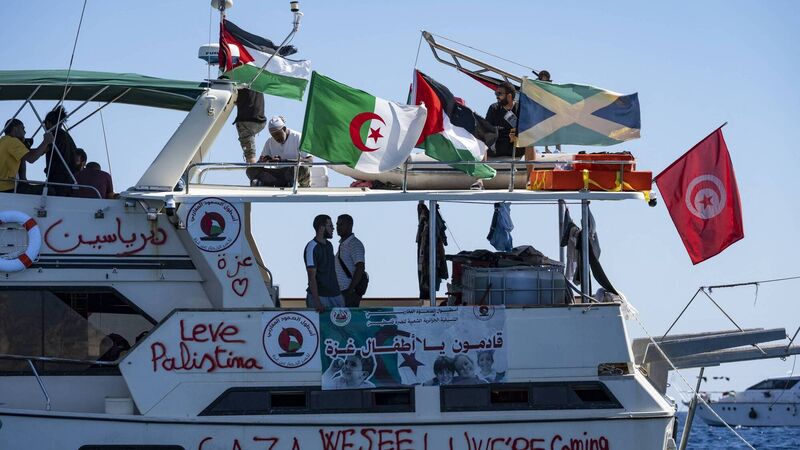Legality of Israel’s actions against Gaza flotilla 'open to question'

Members of the group of ships of the Global Sumud Flotilla to Gaza moored at the small island of Koufonisi, south of the island of Crete, on September 26. Picture: Eleftherios Elis/AFP via Getty
The legality of Israel’s actions against the Gaza flotilla is “open to question”, according to a leading maritime security expert.
Professor Ian Speller, director of the Centre for Military History & Strategic Studies at Maynooth University, said international law “protects the right to the freedom of navigation outside territorial waters”.











